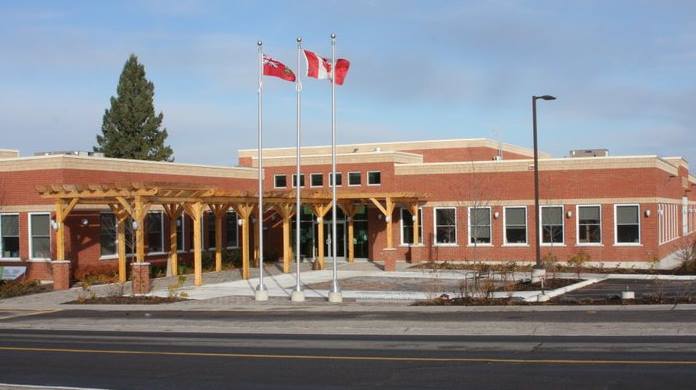Learn about the benefits of constructing a multi-year internship from a MLIS student's perspective.

Program Turnout Without Resource Burnout: A Case for Community Hubs
My name is Kimberly McMunn and I am the CEO of Hastings Highlands Public Library. I also carry the title of Community Resource Officer through a partnership with our Municipality. In this capacity I assist with economic development funding and I find the resources to facilitate social/recreational activities within our community.
Recently, my co-workers and I have made presentations at the Ontario Library Association Super Conference, the Cultural Summit in Madawaska Valley and CAO Forums in Douro Dummer and Smith Falls. Our topic has been embracing community hubs and community-led libraries.
The topic we chose is a direct result of overcoming a major challenge: our rurally-located, multi-purpose facility (library, municipal office and gymnasium).

Like in most organizations, funding and staffing were major challenges. Add to that, there were considerations of community needs and stakeholder expectations – we were in a no-win situation. It was time to be proactive instead of reactive.
Our first steps were not received favourably.
We stopped all of our value-added programs and held strong to core service. Our municipal partners supported our decision. When the public outcry came for more activities, programs and events, they met that demand with “What are you (the public) willing to do to get these services?” It was a tough transition, but we held firm during the storm of emotions and outrage.
Slowly, a shift happened and people began to approach staff with a more positive mindset. They took ownership of their programs and a new facilitation model was born.
The road was rocky throughout the changeover. Things like liability and policy always seemed to be popping up. It was a cultural shift for all of us. Working together with our community though, we manage to find compromise and collaboration.
We found the key to success was to find the “undiscovered community leaders.”
There is no point in asking a person who is already busy, to take on another job. Instead, we watched for people who had a strong interest and knowledge in a topic and approached them with a plan of action. Sometimes, we got a polite “no”, but mostly their response was positive and our value-added programs are flourishing once again.
Our new problem is time management: more programs than time slots available.
Our biggest success is the Sew ‘n Sews. They are our poster child for community-hubs. About two years ago, this group formed as a drop-in session on Wednesday afternoons. The members bring their own projects and usually someone brings cookies, to go with the coffee and tea that we supply. Each week, they host a ‘Sew and Tell’ to build esteem within their members. This has been an inclusive group, happy to assist us with addressing social isolation. As transportation is sometimes an issue, some of the members, car pool each week. The camaraderie has also helped with sustainability.
Since their inception, not only have the Sew ‘n Sews purchased their own desks, but also the chairs and various sewing supplies used on a weekly basis. On occasion, they have also created quilted projects and donated them to charitable organizations, such as placemats for Meals on Wheels.
However, the statistic that really hit home with my municipal stakeholders was the news that two of the members of the Sew ‘n Sews are opening a small quilt store. The program had actually become an incubator for business growth.
Aside from brief staff assistance with policy and social media, our process is mostly community-driven. As word of our programs circulates, new initiatives are developed. The community is very excited to have the opportunity to learn and share together. Here in Hastings Highlands, we embrace a broader scope of literacy – competence or knowledge in a specified area; which allows us to break the barriers of traditional service models. We are happy to share our story – it’s a library thing.
Kimberly McMunn is the CEO of Hastings Highlands Public Library. She can be reached at hhplceo [at] gmail.com.


